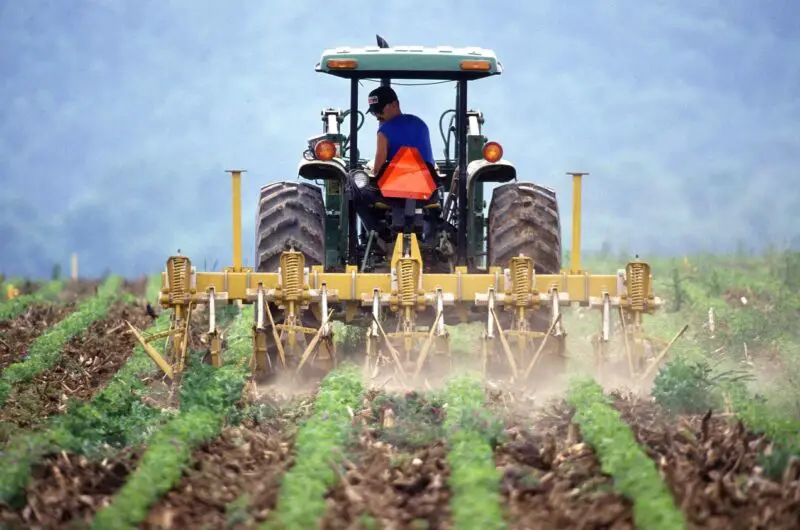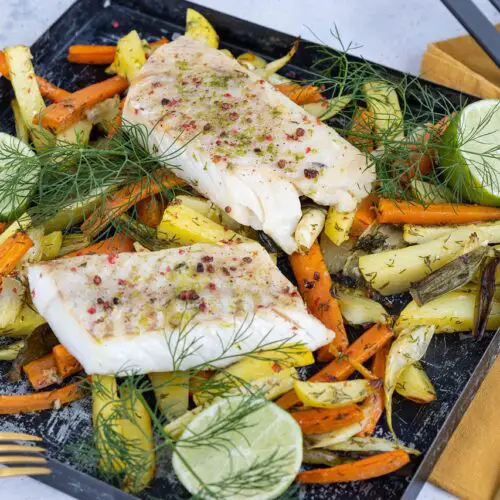In an era where industrial agriculture dominates global food systems, the role of local farmers remains vital to community resilience, sustainability, and the preservation of regional food cultures. Small and mid-sized farmers often face challenges like limited market access, fluctuating prices, and competition from large conglomerates.
Fortunately, a growing number of food companies are stepping up to support these local heroes, forging partnerships that benefit farmers, consumers, and the environment alike. As of March 3, 2025, several standout companies are leading the charge, prioritizing local sourcing, fair trade, and sustainable practices. This article explores some of the best food companies supporting local farmers, delving into their initiatives, values, and the tangible impact they’re making.
Why Supporting Local Farmers Matters
Before diving into the companies, it’s worth understanding why supporting local farmers is so crucial. Local farmers are the backbone of regional food security, cultivating fresh, seasonal produce that reduces the carbon footprint tied to long-distance transportation. They preserve biodiversity by growing heirloom varieties and maintaining traditional farming methods often overlooked by industrial operations. Economically, money spent with local farmers tends to stay within the community, bolstering rural livelihoods and reducing dependence on global supply chains prone to disruption.
Yet, local farmers face steep hurdles. The consolidation of the food industry has left many struggling to compete with mass-produced goods, while climate change and rising costs add further pressure. Companies that prioritize local sourcing can provide a lifeline, offering farmers stable markets, fair prices, and resources to thrive. The best of these companies go beyond mere purchasing—they invest in farmer education, infrastructure, and sustainable practices, creating a ripple effect of positive change.
1. Culver’s: Thanking Farmers with Every Bite
Culver’s, the Midwest-rooted fast-food chain famous for its ButterBurgers and frozen custard, stands out as a champion of local farmers. With a strong presence across the U.S., Culver’s has built its brand around celebrating the agricultural communities that supply its ingredients. The company’s “Thank You Farmers” campaign is more than a marketing slogan—it’s a commitment to action.
Culver’s partners with local dairy farmers to source the milk for its custard, ensuring freshness while supporting family farms. The company has raised hundreds of thousands of dollars for the National FFA Organization (formerly Future Farmers of America), funding scholarships and programs for young farmers. Beyond dairy, Culver’s emphasizes locally sourced beef and produce where possible, reducing transportation emissions and keeping dollars in rural economies.
In some regions, it has even painted barns with “Thank You Farmers” messages, a visible tribute to its suppliers.
What sets Culver’s apart is its rejection of fear-based marketing. Unlike some chains that tout “antibiotic-free” or “hormone-free” labels to appeal to consumer trends, Culver’s trusts its farmers to use science-based practices responsibly. This approach fosters mutual respect and ensures farmers aren’t pressured to adopt costly, unnecessary changes to meet fleeting fads. In 2025, Culver’s continues to expand its farmer-support initiatives, proving fast food can align with agricultural values.
2. McDonald’s: Showcasing Farmers on a Global Stage
McDonald’s may be a global giant, but it’s increasingly turning to local farmers to supply its vast network of restaurants. In the U.S., the company has long-term relationships with regional producers for potatoes, beef, and poultry, emphasizing quality and consistency without gimmicky marketing. McDonald’s website features stories of the farmers behind its food, humanizing the supply chain and giving consumers a glimpse into the fields and ranches that feed them.
In 2025, McDonald’s has ramped up its efforts to support local agriculture through innovation. The company collaborates with chefs and dietitians to develop new menu items using regionally sourced ingredients, such as seasonal vegetables or heritage grains. This not only diversifies its offerings but also provides farmers with new markets for their crops. McDonald’s also invests in farmer training programs, helping producers adopt sustainable practices like water conservation and soil health management—critical in an era of climate uncertainty.
While McDonald’s scale means it can’t source everything locally, its commitment to regional suppliers in the U.S. demonstrates how even the biggest players can bolster small and mid-sized farms. By maintaining transparency and building lasting partnerships, McDonald’s sets a benchmark for corporate responsibility in agriculture.
3. Domino’s Pizza: Standing Up for Farmers
Domino’s Pizza has earned a spot on this list not just for its sourcing but for its principled stance in supporting farmers against activist pressure. The company works with local dairy farmers for its cheese and partners with regional growers for vegetables like tomatoes and peppers. In 2025, Domino’s continues to prioritize American farmers, ensuring its supply chain remains rooted in domestic agriculture.
What makes Domino’s notable is its refusal to bow to campaigns from groups like the Humane Society of the United States (HSUS) and PETA, which have criticized the use of meat and dairy in its products. Domino’s has publicly defended farmers, stating it trusts their expertise in animal welfare and sustainable practices. This stance matters because it shields farmers from unwarranted vilification and supports their ability to operate without succumbing to restrictive demands that could hurt their livelihoods.
By sticking to high-quality, locally sourced ingredients and rejecting anti-agriculture narratives, Domino’s proves that supporting farmers can coexist with profitability. Next time you order a pizza with extra cheese, know you’re indirectly backing the farmers Domino’s champions.
4. Wendy’s: Science-Based Support for Livestock Farmers
Wendy’s has carved out a niche as a fast-food chain that embraces science-based agriculture while supporting local farmers. Unlike competitors that have jumped on the “antibiotic-free” bandwagon, Wendy’s acknowledges that antibiotics are a vital tool in livestock care when used responsibly. This position protects farmers from activist-driven mandates that could raise costs or compromise animal health.
In 2025, Wendy’s continues to source beef, chicken, and pork from regional producers across the U.S., building long-term relationships that ensure stability for farmers. The company’s “Fresh, Never Frozen” beef promise relies on proximity to local suppliers, cutting down on transport time and supporting rural economies. Wendy’s also highlights its farmers through storytelling campaigns, giving consumers a direct connection to the people raising their food.
Wendy’s commitment extends to sustainability, with initiatives to reduce water use and improve soil health among its suppliers. By balancing farmer needs with consumer demand, Wendy’s exemplifies how fast food can uplift local agriculture without sacrificing practicality.
5. Imperfect Foods: Reducing Waste, Boosting Farmers
Imperfect Foods takes a unique approach to supporting local farmers by tackling food waste head-on. Launched to rescue “ugly” or surplus produce that doesn’t meet supermarket cosmetic standards, the company has grown into a subscription service delivering affordable, sustainable groceries across the U.S. In 2025, Imperfect Foods remains a lifeline for small farmers who might otherwise lose income from imperfect harvests.
The company partners with local growers to purchase fruits, vegetables, and other goods that would typically go unsold. This not only provides farmers with a reliable market but also reduces the environmental impact of wasted food. Imperfect Foods also sources dairy, eggs, and pantry staples from regional producers, ensuring a diverse range of local products reaches consumers.
Beyond purchasing, Imperfect Foods supports farmers through education on sustainable practices and by offering data on consumer preferences, helping growers adapt to market trends. Its mission-driven model proves that supporting local farmers can align with broader goals of equity and environmental stewardship.
6. WayCool Foods: Connecting Indian Farmers to Markets
While many examples hail from the U.S., WayCool Foods stands out in India, a country where smallholder farmers dominate agriculture. Based in Chennai, WayCool operates an agri-commerce platform that links over 85,000 farmers to retailers, restaurants, and consumers. In 2025, the company continues to leverage technology to streamline the supply chain, reducing waste and ensuring farmers earn fair prices.
Through its Outgrow program, WayCool provides farmers with training, high-quality seeds, and access to markets, empowering them to increase yields and income. The company’s focus on fresh produce, staples, and dairy keeps food miles low and supports rural livelihoods. By bridging the gap between soil and sale, WayCool demonstrates how innovation can uplift local farmers in a developing economy.
7. Patagonia Provisions: Regenerative Farming Pioneers
Patagonia Provisions, the food arm of outdoor brand Patagonia, is redefining support for local farmers through regenerative agriculture. Launched to promote sustainable eating, Provisions sources ingredients like grains, salmon, and buffalo from farmers practicing soil-building techniques. In 2025, the company remains a leader in the regenerative organic movement, partnering with the Rodale Institute to certify its suppliers.
By paying premium prices for regeneratively grown products, Patagonia Provisions incentivizes farmers to adopt practices that restore ecosystems and sequester carbon. Its direct relationships with growers—many of them small-scale—ensure fair compensation and long-term stability. From ancient grain pasta to wild-caught fish, every product tells a story of environmental and community impact.
Looking Ahead: The Future of Farmer-Supportive Companies
The companies highlighted here—Culver’s, McDonald’s, Domino’s, Wendy’s, Imperfect Foods, WayCool Foods, and Patagonia Provisions—represent a diverse cross-section of the food industry, from fast food to subscription services to mission-driven brands. What unites them is a commitment to local farmers, whether through direct sourcing, fair pricing, or advocacy against misguided pressures. As of March 3, 2025, their efforts are more critical than ever, with climate change, economic uncertainty, and supply chain disruptions underscoring the need for resilient local food systems.
The future will likely see more companies following suit, driven by consumer demand for transparency and sustainability. Innovations like digital platforms, regenerative certifications, and farmer cooperatives could further amplify these efforts. For now, these standout companies offer a blueprint for how the food industry can honor its roots—supporting the farmers who feed us all.


















